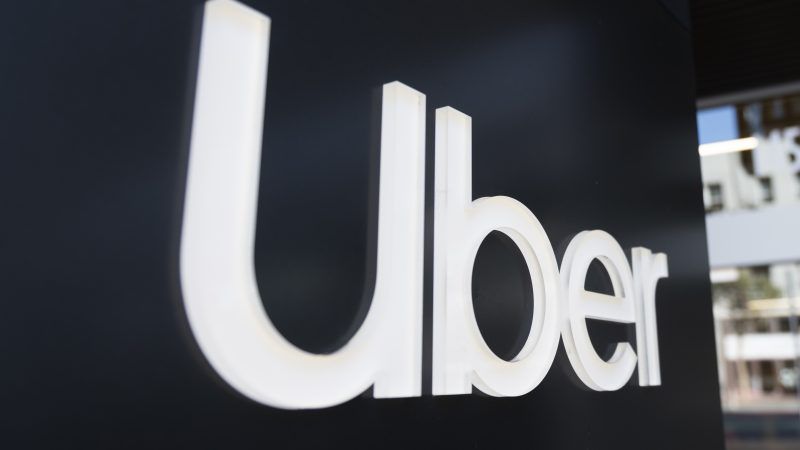Uber's Lawsuit Against California's Anti-Freelancer Law Is Missing a Key Constitutional Element
It's crucial to get the constitutional text and history straight.

The ride-sharing company Uber and the food-delivery outfit Postmates, joined by two individual plaintiffs, filed a federal lawsuit last month challenging AB 5, California's strict new law regulating the so-called gig economy. Unfortunately, the suit neglected to include an important and necessary constitutional argument.
AB 5, as Reason's Elizabeth Nolan Brown has reported, was designed to force "companies like Uber and Postmates—along with any employer that relies heavily on independent contractors, freelancers, or consultants—to hire most workers as full-time employees and provide a range of benefits to their contingent workforces." The two companies, which launched the suit at the U.S. District Court for the Central District of California, Western Division, argue that this regulation deprives "workers of the flexibility and freedom of their current independent status, and instead [places] them under the authority, control, and direction of an employer." This, the suit maintains, violates both workers' and employers' "fundamental liberty to pursue their chosen work as independent service providers and technology companies in the on-demand economy."
Uber and Postmates are correct that the U.S. Constitution, properly understood, protects economic liberty against state infringement. But their suit fails to invoke the principal constitutional provision that does the protecting. Consider the language of the suit:
AB 5 violates the Equal Protection and Due Process Clauses of the Fourteenth Amendment to the United States Constitution, the Ninth Amendment to the United States Constitution, and the Contracts Clause of Article I of the United States Constitution, as well as the Equal Protection Clause, Inalienable Rights Clause, Due Process Clause, Baby Ninth Amendment, and Contracts Clause of the California Constitution.
Missing from this rather long list is the Privileges or Immunities Clause of the 14th Amendment, a provision which was both designed and originally understood to protect a broad range of fundamental rights from state abuse, including economic liberty. As then–Texas Supreme Court Justice Don Willett observed in a 2015 opinion, the 14th Amendment's record "is replete with indications that 'privileges or immunities' encompassed the right to earn a living free from unreasonable government intrusion."
Don't just take Willett's word for it. Take the word of Rep. John Bingham (R–Ohio), the principal author of the Privileges or Immunities Clause itself. "The provisions of the Constitution guaranteeing rights, privileges, and immunities to citizens of the United States," Bingham told the House of Representatives in 1871, include "the constitutional liberty…to work in an honest calling and contribute by your toil in some sort to the support of yourself, to the support of your fellowmen, and to be secure in the enjoyment of the fruits of your toil."
It's nice to see Uber and Postmates championing the right to economic liberty in federal court. It would be even nicer if they included the most important constitutional support for that right.


Show Comments (14)